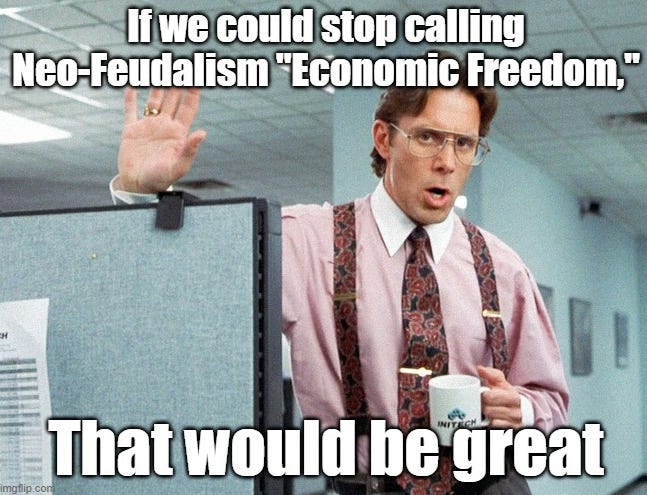"I Want To Get Long This Mega-Trend": Harris Kupperman
"The world has changed, but the Socialist taxing state hasn’t considered this possibility."
One of my favorite investors that I love reading and following, Harris Kupperman, has offered up his latest thoughts on the market this week.
Harris is the founder of Praetorian Capital, a hedge fund focused on using macro trends to guide stock selection.
Harris is one of my favorite follows and I find his opinions - especially on macro and commodities - to be extremely resourceful. I’m certain my readers will find the same.
Please be sure to read both my and Harris’ disclaimers, located at the bottom of this post.
The .1% Refugee Crisis
Humor me for a bit, as I engage in some political theory. Don’t worry, when the narrative returns, we’re going to be looking at an investible Mega-Trend that no one is following.
Put simply; governments exist to extract wealth from the productive class and channel that wealth to the political class. We all accept that this is inevitable, and since we get some services in return, we grudgingly accept this state of affairs—much as humanity has since civilization began.
Let’s go back in time. For the majority of human history, the primary source of wealth was agricultural land. Governments would tax that land, or the production from that land. Those with land were given titles and were expected to show a certain level of loyalty to the government, in return, the government often purchased goods from the landowners, returning part of the tax receipts to them. It was a somewhat circular economy, but with a lot of slippage to the government. The rest of the peasants produced little of value, and consumed little tax revenue in return. They weren’t really part of the equation, outside of some tariffs on the merchant class. The government was happy with this state of affairs, and the landowners couldn’t do much unless they all teamed up to depose the government.
When the industrial revolution began, most governments looked at factories as yet another form of immobile property to tax—not so different from a gristmill. The difference was that factories were far more productive than agricultural land, and within a few decades, the factory owners became far wealthier than the landed gentry who previously made up the tax base. Additionally, in the Great Powers competition of the 1800s, there was a nationalist desire to let factories and then railroads proliferate, hence a hesitancy to tax them. This was only accentuated by the need to constantly reinvest capital into these industries, often for the national good. Therefore, governments allowed for a depreciation shield, making factories into a poor tax base, as opposed to agricultural land with a more constant yield, and a lower level of depreciation. As a result, governments realized that they could unionize the workers, improve the wages a bit, and then tax those wages instead. Within a few decades, the tax base shifted from the millennia-old tax on fixed assets, to a tax on the working class.
Eventually, unionized factories were obsoleted by globalization, and cheap overseas labor, hollowing out this tax base of laborers. Western governments needed a new tax base, but failed to find one. Instead, they responded by printing the money they needed, with the hope that technological disinflation, and increased globalization would offset the inevitable inflation of printing money, while the taxes upon asset inflation would solve the budget deficits. Unfortunately, we’ve hit a stall-speed on this process. In 2023, total government spending was approximately 33%, while in places like France, it has increased to 58% of GDP (IMF). The number can indeed go higher, in the Soviet Union it was effectively 100%. However, there are rapidly diminishing returns to this process. At the same time, Western Governments have made hundreds of trillions of unfunded promises to their citizens. Normally, governments would simply raise the tax rate, to plug the accelerating budget deficits, but they’ve encountered a problem.





